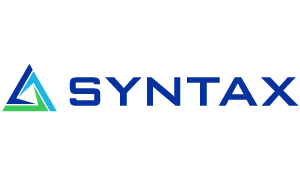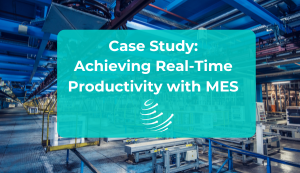SAP Manufacturing
Manufacturing Defined
Manufacturing refers to the creation of finished goods with the help of equipment, labor, machines, tools, parts, and raw materials. It includes variable factors like supplies, equipment, overhead, parts, and skilled workers. Production planning and scheduling contain comprehensive planning features and integrated scheduling to create efficiencies and lower costs. Modern manufacturing solutions include on-premise deployment, collaboration enterprise-wide, seamless digital capabilities, and real-time analytics for problem-solving and robust decision-making.
SAP Manufacturing
Key Capabilities of SAP S/4HANA Manufacturing for planning and scheduling include:
- Comprehensive end-to-end planning: Planning production resources beyond material requirements planning (MRP) functionality, considering capacity and material availability constraints in the planning model, and integrating manufacturing master data.
- Integrated scheduling: Streamline scheduling through global production environments, use industry scheduling for block, campaign, shelf-life and model mix planning, and perform detailed scheduling.
Manufacturing Defined
Manufacturing refers to the creation of finished goods with the help of equipment, labor, machines, tools, parts, and raw materials. It includes variable factors like supplies, equipment, overhead, parts, and skilled workers. Production planning and scheduling contain comprehensive planning features and integrated scheduling to create efficiencies and lower costs. Modern manufacturing solutions include on-premise deployment, collaboration enterprise-wide, seamless digital capabilities, and real-time analytics for problem-solving and robust decision-making.
SAP Manufacturing
Key Capabilities of SAP S/4HANA Manufacturing for planning and scheduling include:
- Comprehensive end-to-end planning: Planning production resources beyond material requirements planning (MRP) functionality, considering capacity and material availability constraints in the planning model, and integrating manufacturing master data.
- Integrated scheduling: Streamline scheduling through global production environments, use industry scheduling for block, campaign, shelf-life and model mix planning, and perform detailed scheduling.
Key Capabilities of SAP S/4HANA Manufacturing for production engineering and operations include:
- Streamlined engineering: Digital collaboration with master data, design handovers, process planning, and change management. Simplify build package creation, management, and delivery for global environments.
- Enhanced operations management: Analyze change impact and change implementation. System-optimized monitoring of shop floor operations with issue detection, root cause analysis, and decision support.
The importance of manufacturing is that it leads to research and development, innovation, productivity, exports, and jobs. It helps to raise living standards and generates more economic activity than any other business sector.
3 benefits are:
- Simplify functionality: Digital enterprise collaboration to simplify product planning, change management, and operations. Decrease days in inventory by integrating scheduling and execution for a full view of product data.
- Optimize adaptability: Minimize production disruptions in shop floor execution. Reduce cycle time by adapting production schedules to plant conditions.
- Enhance planning capabilities: Streamline build package creation, planning, and shop floor operations. Reduce revenue loss from stock outs by improving flexibility into production planning scenarios.
Vendor partners to modernize your manufacturing and increase efficiency include: Forcam, SAP, and Movilitas.
Key Considerations for SAPinsiders are:
- Expert Panel Discussion: Boost Manufacturing Agility and Flexibility with SAP HANA. Listen to leaders engage about the state of manufacturing agility and flexibility by using SAP HANA.
- Belmo Increases Warehouse Productivity and Order Fulfillment by 30%. Read the case study on how the use of technology, like machine learning, can have significant benefits.
- Industry 4.0: The Journey to the Future of Productivity. Read about the importance of digital technologies, but also understand automation and collaboration are the path to success.














